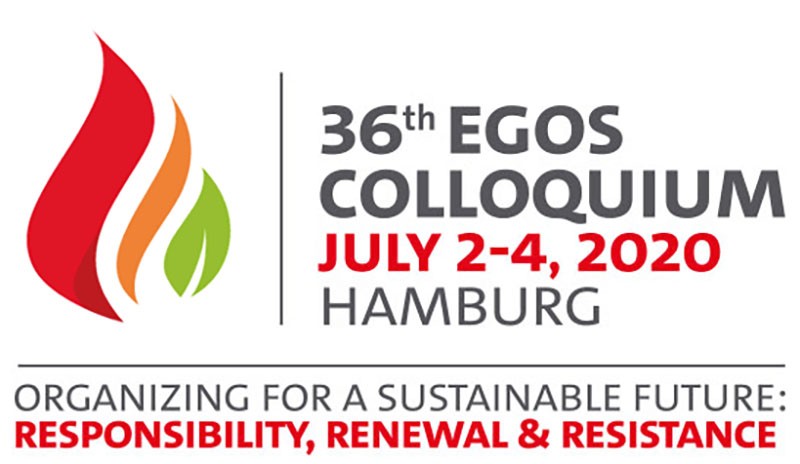Sub-theme 03: [SWG] Civil Society Organizing in the Welfare Society: Forms, Agendas & Responsibilities
Call for Papers
In many late-industrial societies, new architectures of welfare have developed over the past three decades, with different
types of CSOs playing pivotal roles in this on-going transformation. In emerging or transforming welfare economies around
the globe, new forms of civil society mobilization and service-delivery are becoming an increasingly important part of the
welfare landscape. Importantly, civil society organizations and initiatives appear both early in the “input” and
agenda-setting phase of the welfare policy process (Reuter et al., 2014), and in the “output” phase where concrete
welfare services are produced and provided to a diverse set of communities. While this dual role for CSOs is not new (Heyse,
2011; Anheier, 2014), an increasing ambivalence characterizes the institutional context in which they are placed, with responsibilities
becoming more unclear.
The ongoing fragmentation and hybridization of the welfare architecture has consequences
both for governance – as in control, steering and decision-making – of entire welfare eco-system, and for the character of
service provision. The era of clear divisions between spheres of organizing and respective responsibilities has long passed.
Today we find rarely embraced the prototypical divisions between the Weberian public agency (1978), the Coaseian business
firm (1937) or the Titmuss voluntary agency (1970). Instead we face a constellation of diverse actors engaged in addressing
the social and environmental challenges today’s welfare societies face. New problem solving approaches emerge, concerning
modes of delivery (e.g., co-production, Brandsen et al., 2018), funding (e.g., social impact bonds, Edmiston & Nicholls,
2017; Cooper et al., 2016), resourcing (e.g., community-based enterprise, Huybrechts & Haugh, 2017), or modes of innovating
(e.g., social movement-led innovation, Carberry et al., 2017).
In some areas CSOs are experiencing increasing
competition from both for-profits and local government actors, leading to coping through organizational hybridity (Rhodes
& Donnelly-Cox, 2014). In other areas, effective problem solving depends on cross-sector collaboration and diverse actor
networks (Anheier et al., 2018). At the political end, ideological and political agendas of the different actors are increasingly
fused with both profit motives and other types of interests as the welfare-related social contract is being re-negotiated.
“Strategic action fields” (Fligstein & McAdam, 2015) within the area are becoming difficult to navigate for CSOs.
As it matures the emerging complex web of increasingly interdependent actors in the welfare field opens up for intriguing
organizational issues and creates a potential for lasting contributions to organizational theory. For this sub-theme, we therefore
call for papers that explore this organizational and institutional complexity and the organizational and institutional challenges
related to the changing or evolving role(s) of CSOs in welfare provision and problem solving.
Exemplary questions
include:
How are contemporary welfare systems and problem solving organized? (for example: pillarization versus cross-cutting challenges; collaborative settings versus competition, etc.)
Which new forms and principles of organizing do we see as compared to the past? (for example: co-production and co-creation; social impact bonds or other impact oriented finance; cooperative enterprise, etc.)
What are the specific roles of CSOs in this new context, and which changes does this bring or require at the organizational or institutional level? (for example: innovation; value guarding; lobbyism, etc.)
What types of civil society actors can we see (re-)entering the welfare provision arena? (e.g. faith-based CSOs in previously secularized contexts; social movement organizations, etc.)
What are the driving forces behind, and the consequences of, the increased hybrid character or mix of institutional logics in many welfare fields? (for example: complexity; paradox; ambiguity; dynamism, etc.)
We extend our invitation to organization
scholars from a wide range of social science disciplines, focusing on contributions that develop scholarship on the new responsibilities
of CSOs in relation to other actors and within changing institutional environments.
References
- Anheier, H.K. (2014): Nonprofit Organizations: Theory, Management, Policy. London: Routledge.
- Anheier, H.K., & Krlev, G. (2014): “Welfare Regimes, Policy Reforms, and Hybridity: Introduction to the Special Issue.” American Behavioral Scientist, 58 (11), 1395–1411.
- Anheier, H.K., Krlev, G., & Mildenberger, G. (eds.) (2019): Social Innovation: Comparative Perspectives. New York: Routledge.
- Brandsen, T., Steen, T., & Verschuere, B. (2018): Co-production and Co-creation: Engaging Citizens in Public Services. Routledge Critical Studies in Public Management. New York: Routledge.
- Carberry, E.J., Bharati, P., Levy, D.L., & Chaudhury, A. (2017): “Social Movements as Catalysts for Corporate Social Innovation: Environmental Activism and the Adoption of Green Information Systems.” Business & Society, 58 (5), 1083–1127.
- Coase, R. (1937): “The Nature of the Firam.” Economica, 4 (16), 386–405.
- Cooper, C., Graham, C., & Himick, D. (2016): “Social impact bonds: The securitization of the homeless.” Accounting, Organizations and Society, 55, 63–82.
- Fligstein, N., & McAdam, D. (2015): A Theory of Fields. Oxford: Oxford University Press.
- Heyse, L. (2011): “From agenda setting to decision making: Opening the black box of NGOs.” In: B. Reinalda (ed.): The Ashgate Research Companion to Non-State Actors). London: Taylor and Francis, 277–290.
- Rhodes, M.L., & Donnelly-Cox, G. (2014): “Hybridity and Social Entrepreneurship in Social Housing in Ireland.” Voluntas: International Journal of Voluntary and Nonprofit Organizations, 25 (6), 1630–1647.
- Huybrechts, B., & Haugh, H. (2017): “The Roles of Networks in Institutionalizing New Hybrid Organizational Forms: Insights from the European Renewable Energy Cooperative Network.” Organization Studies, 39 (8), 1085–1108.
- Reuter, M., Wijkström, F., & Meyer, M. (2014): “Who Calls the Shots? The Real Normative Power of Civil Society.” In: M. Freise & T. Hallmann (eds.): Modernizing Democracy: Associations and Associating in the 21st Century. New York: Springer, 71–82.
- Titmuss, R.M., Oakley, A., & Ashton, J. (1970): The Gift Relationship: From Human Blood to Social Policy. New York: New Press.
- Weber, M. (1978): Economy and Society: An Outline of Interpretive Sociology. Berkeley: University of California Press.


